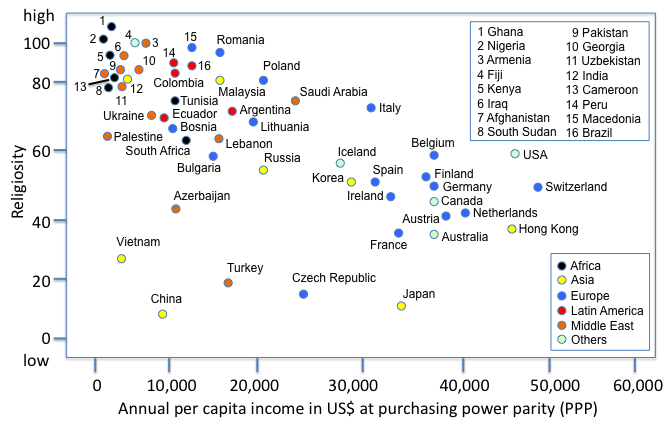
Economics of religion
The economics of religion concerns both the application of the techniques of economics to the study of religion and the relationship between economic and religious behaviours.[1][2] Contemporary writers on the subject trace it back to Adam Smith (1776).[3]
Empirical work examines the causal influence of religion in microeconomics to explain individual behaviour[4] and in the macroeconomic determinants of economic growth.[5] Religious economics (or theological economics) is a related subject sometimes overlapping or conflated with the economics of religion.[6]
History[edit]
Adam Smith laid a foundation for economic analysis for religion in The Wealth of Nations (1776), stating that religious organisations are subject to market forces, incentive and competition problems like any other sector of the economy.[7][8] Max Weber later identified a relationship between religion and economic behaviour, attributing in 1905 the modern advent of capitalism to the Protestant reformation.[9]
Experimental economics of religion[edit]
Experimental methods can be applied to isolate the effect of religion on behaviour patterns and to distinguish between believing versus belonging channels. Experimental methods are useful in the economics of religion to standardise measurement and identify causal effect.[16] Methods include looking at religion in various games – Prisoner's dilemma, public goods game, ultimatum game, dictator game and parametric choice. Generally, as Hoffman's (2011) survey shows, few statistically significant results have been identified which commentators attribute to opposing positive versus negative effects between and within individuals.[17]